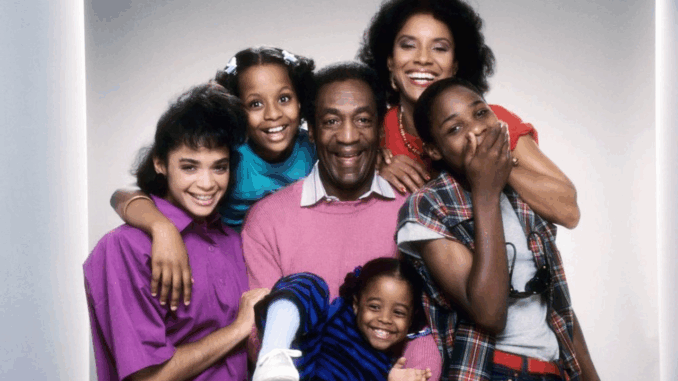
When The Cosby Show debuted on NBC in 1984, few could have predicted the cultural revolution it would spark. More than just a hit sitcom, the show redefined how African-American families were portrayed on television and left a lasting impact on the medium.
A New Kind of Family on TV
At the heart of The Cosby Show was the Huxtable family—a successful, loving, and educated African-American household led by Dr. Heathcliff Huxtable, an obstetrician, and Clair Huxtable, a high-powered attorney. Unlike previous portrayals of Black families that often focused on poverty or hardship, the Huxtables lived in a Brooklyn brownstone and raised their five children with humor, discipline, and affection.
This positive representation was revolutionary for its time. The show provided mainstream audiences with a new, aspirational vision of Black American life that was rarely seen on network television.
A Ratings Powerhouse
From 1985 to 1989, The Cosby Show was the number one show in America, dominating Thursday nights and helping to revive NBC’s fortunes. At its peak, the show drew more than 30 million viewers weekly. It consistently topped ratings and was praised by critics for its wit, warmth, and relatability.
Cultural Impact Beyond the Screen
Beyond entertainment, The Cosby Show influenced real-life education and aspirations. Historically Black colleges and universities (HBCUs) saw enrollment rise, in part due to the show’s portrayal of college life through the spinoff A Different World. The show’s subtle promotion of jazz, African-American art, and family values added depth to its comedic tone.
It also opened doors for Black actors, writers, and producers, proving that shows with Black leads could be both critically acclaimed and commercially successful.
Legacy Complicated by Scandal
While The Cosby Show remains a historic landmark, its legacy is now entangled with controversy. The downfall of Bill Cosby due to numerous sexual assault allegations has led many networks and platforms to remove reruns of the show. This has sparked debate: can the cultural value of a show be separated from the personal actions of its creator?
Conclusion: A Complex But Enduring Legacy
Today, The Cosby Show is remembered both for its groundbreaking contributions to television and for the moral complexities it now carries. It paved the way for future sitcoms like Black-ish, The Fresh Prince of Bel-Air, and Family Matters, and its influence on the representation of Black families in media is undeniable.
Though the show’s legacy is no longer untarnished, its impact on culture, comedy, and television history remains profound.
